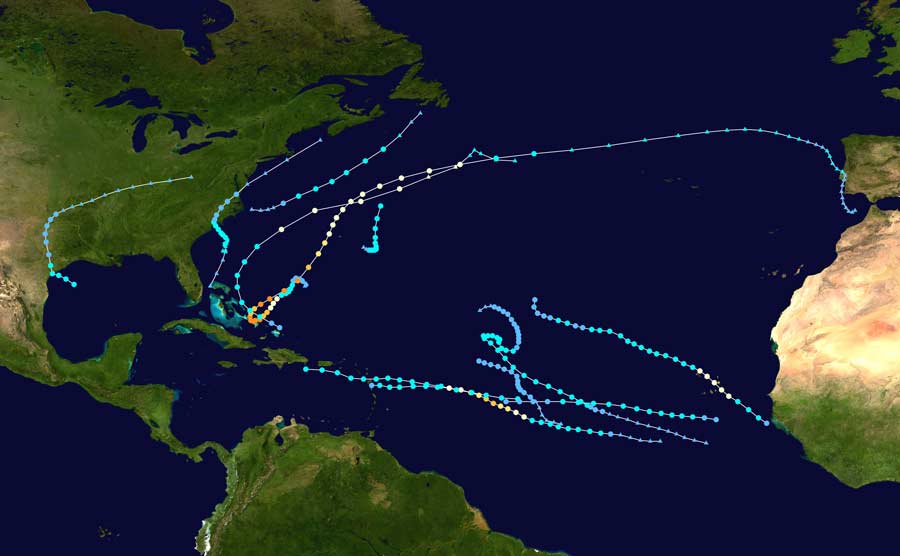The entry period for participation in AIR's first external U.S. hurricane contest closed on May 31, 2016—just ahead of the official start to the season—and I'm glad to report that there's been a terrific response. More than 150 entries from you, dear readers, have been received!
To recap: The goal of the contest is to predict the number of named tropical storms that will form in the Atlantic this year, how many of those will become hurricanes, how many of those will become major hurricanes (Saffir-Simpson Category 3 or higher), and the number of hurricanes that will make landfall in mainland U.S.

On average, based on the last 30 years of data, AIR finds that by season's end, 12 named storms develop in the Atlantic. A little more than half of these intensify to hurricane strength, and 2–3 storms per year will reach major hurricane status. This year most of the organizations that issue seasonal forecasts expect the season to be near average to above average. Between them they are predicting 12–18 named storms, 5–11 hurricanes, and 1–5 major hurricanes. The record low for the number of Atlantic named storms is 4, and the high is 28; for hurricanes, the record low is 2 and the high is 15. The lowest number of major hurricanes recorded is 0 and the highest is 7.
So what did you forecast for the season?
Contest entrants think that there will be anywhere from 5–54 named storms this year, 1–20 of which will develop into hurricanes, of which 0–15 will become Saffir-Simpson Category 3 and higher, and that 0–16 will make landfall in the U.S. as hurricanes. The average of entrants' responses is 14.42 named storms, 6.62 hurricanes, 3.08 major hurricanes, and 2.07 U.S. landfalls—which is remarkably in line with the averages and seasonal forecasts noted above.
Remember, hurricane prediction is very difficult, especially if it's about the future. Even with improved technology, seasonal forecasts are challenging—and the earlier they are made, the more challenging they are. Storms forming ahead of the official start to the season should not be seen as indicative of an active season. But just as a brisk start doesn't mean that things will continue that way, it is equally true that a below-normal season doesn't mean that insured losses will be low. As history has shown us on many occasions, just one major storm can cause record-breaking losses.
The AIR Hurricane Contest runs through December 31, 2016, and the winner will be announced in January; the prize will be a personal weather station. The rules can be found in my contest announcement. There's nothing for you to do now but wait and see how the Atlantic hurricane season plays out this year.



